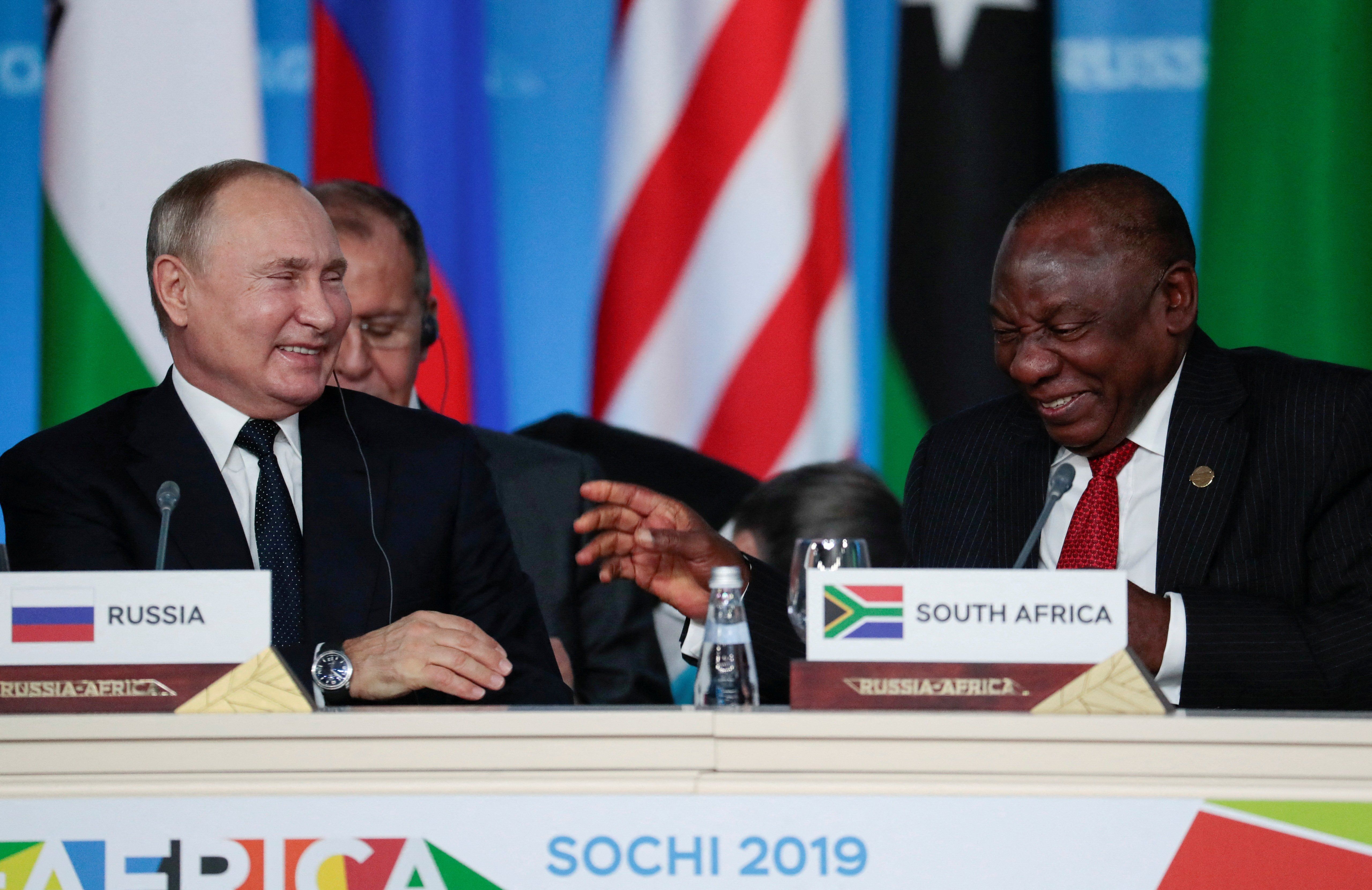How we got here: In March, the International Criminal Court indicted Putin for war crimes in connection with Russia’s systematic abduction of children from Ukraine.
So if Putin sets foot in South Africa, a member of the ICC, the authorities there are technically obligated to arrest him and send him to The Hague. To be fair, there’s about a snowball’s chance in Pretoria of that happening, but how to hold the summit without him?
South Africa is in a bind. The BRICS summit is an important symbolic event for a group representing the Global South. But South Africa is already facing criticism from the US for cozying up to Putin since his invasion of Ukraine, and Washington has even accused the government there of tacitly allowing arms shipments to Russia.
One solution is to ask Putin to attend by Zoom, a slight that the Russian president might not accept at all. Another is for South Africa to either ignore the ICC warrant or pass legislation that overrides its obligation to carry it out. A third is, reportedly, to ask China to host the party instead.
But the dilemma is about more than South Africa; it’s about the long-standing question of whether the BRICS, a group of powerful countries with very different economies, political systems, and societies, can really agree on key issues with important consequences.
